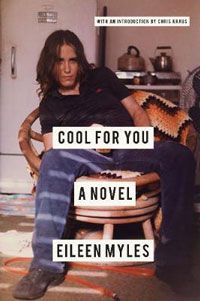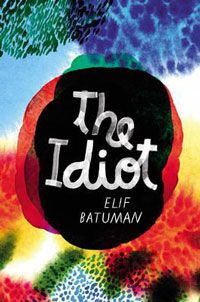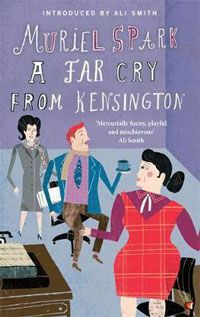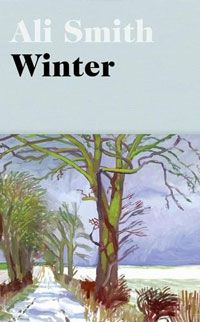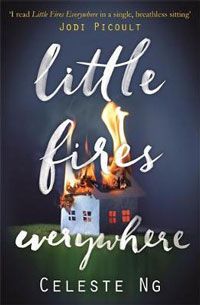Carlton bookseller George Delaney shares five books escaped into during 2017.
Cool For You by Eileen Myles
Eileen Myles’s third autobiographical novel has been out of print for a while but returned in an Australian edition this year, right on time for me to continue making my way through her incredible body of work. Though she is largely known as a poet, Myles does something wonderful with her fiction, telescoping with time and memory. Cool For You follows Chelsea Girls and Inferno: A Poet’s Novel, and the three books function as a triptych of experimental auto-fiction. All are radically different in theme and construction, though not in the narrator’s charming, dry voice, which I cannot get enough of.
In Cool For You, Myles returns to the Massachusetts of her childhood to unearth the story of her grandmother, who suffered a breakdown as a young mother and spent the rest of her life in a state psychiatric hospital of ill repute. As she tells this story, Eileen revisits her childhood and her journey to the punk-era New York, to the Eileen who became famous and dissipated in ways which mimicked her forbears and eventually drove her to sober up.
This is a tender book about family, memory and intergenerational trauma, as well as a sparkling perspective on the Irish diaspora in middle America, full of soul and propelled by a fierce self-knowledge that will knock you over. Though Myles looks at a different time in her life for each of her novels, all of them have left impressions on me as joyous, rough, thoughtful queer coming-of-age stories.
The Idiot by Elif Batuman
Elif Batuman, Turkish-American critic and author of the fantastic lit-memoir The Possessed spent a long time writing this campus novel set at Harvard in the early nineties. It’s immediately recognisable to fans of her memoir as fairly autobiographical, but where The Possessed is riotously, chest-clutchingly funny, The Idiot makes for a gentler, more meandering reading experience.
Freshman Selin has a healthy dose of fresh-out-of-school naivety tempered by a sharp, ironic observational power that stops this from being one of those frustrating coming-of-age stories where the reader is always wiser than the character. Instead, Selin’s sometimes heartbreaking adventure into adulthood and first love is filled with hilarious portraits of her peers and the most delightful, digressive tendencies that really do reproduce that sort of aimless curiosity that makes campus stories so charming. The gift of this novel is its ability to be both naive and wondrous, as well as older, wiser, and more humorous thanks to the voice of a clever, clear-eyed narrator.
Like the best of big, fat European novels, The Idiot has the ability to halt time as it normally passes and nudge us down paths of reflection and memory instead. It feels like reading did back when you were a naive new student.
A Far Cry From Kensington by Muriel Spark
This book started me on a bit of a Muriel Spark spree – though I’m trying to space out her novels as a sort of insurance policy against future misery and boredom. They truly are the best remedy I’ve found so far.
Here we meet Mrs. Hawkins, a young poor widow in a Kensington (London) boarding house who holds a poorly paid, though, as she is often reminded, enviable job in publishing in the lean 1950s. No job, however, is worth suffering the ego of Hector Bartlett, self-fashioned literary genius and, in Mrs. Hawkins’ fatal words, pisseur de copie – a pisser of bad prose.
Mrs. Hawkins’ reminiscences of her early career are filled with a cast of outrageous characters: an old publisher in a New Age cult, a Cypriot neighbour with a revolving selection of wives, a paranoid Polish seamstress, and, unfortunately, the persistent Hector – a figure of literary pretension which anyone who’s worked in bookselling and publishing will instantly recognise. What is so satisfying about this book is Mrs. Hawkins’ refusal to let her career force her to tolerate the bullshit which, in real life, we must all take on the chin.
This novel is a perfect escape read for anyone who needs a good laugh, and is also an astute gift for anyone who complains too much about work. If I am any indication, it will also provide them with a week’s worth of total glee.
Winter by Ali Smith
It is always a relief when a new Ali Smith novel arrives. For the length of any of her brisk but full-to-brimming books, you’re guaranteed to have your soul rinsed out, inflated and given a complimentary singing lesson. Which is to say that, somehow, someone alive can make books that are bizarre, stirring, radical in all sorts of ways that are also nurturing, and so, so funny. Funny in the way of strange floating heads, a stranded busload of tourists alighting at a spontaneous garage sale, the visitations of A Christmas Carol on a Brexit- and Trump-ravaged England.
Smith is challenging and reliably strange but always, always joyous and worth the extra bit of attention when you read her books. And you really should!
Little Fires Everywhere by Celeste Ng
I haven’t seen too much press about this novel in Australia yet, but I expect it will gain momentum over the next few months as people get wind of what a crackling treasure it is – it’s a perfect holiday read. I devoured it in two days while tending to a struggling fire on a rainy camping trip and found myself staying up in the freezing cold half the night to keep reading.
Celeste Ng creates a teeth-grindingly complex and compassionate story set in an affluent and conservative Cleveland suburb where ‘family values’ drive characters to confuse and obfuscate their pasts from each other with calamitous results. Mia Warren, a private but opinionated photographic artist, arrives in Shaker Heights with her daughter Pearl, who quickly becomes enveloped in the lives of her landlady’s teenage children, all of whom are hiding things from their domineering mother. When another wealthy neighbour announces that they are adopting an apparently orphaned Chinese baby, each character’s diverging and vocal opinions set in motion a time bomb that turns both families inside out.
I have not read a novel which explores questions of class, race and reproductive politics so intricately, truthfully and compassionately as Ng does here. Each character is flawed, each one is empathetic, and not for a moment in this read can you take a side without feeling for the others. The moral debates here are not overwrought, and though Little Fires Everywhere asks readers to think uncomfortable thoughts, it is also driven by an addictive lashing of melodrama.
Ng represents painful adolescence and the mess of coming-of-age narratives accurately and layers her characters’ histories in satisfying subplots and threads which eventually loop back to the same place: the fires in the title. This is a tense, deliciously enjoyable read that deserves more attention.


